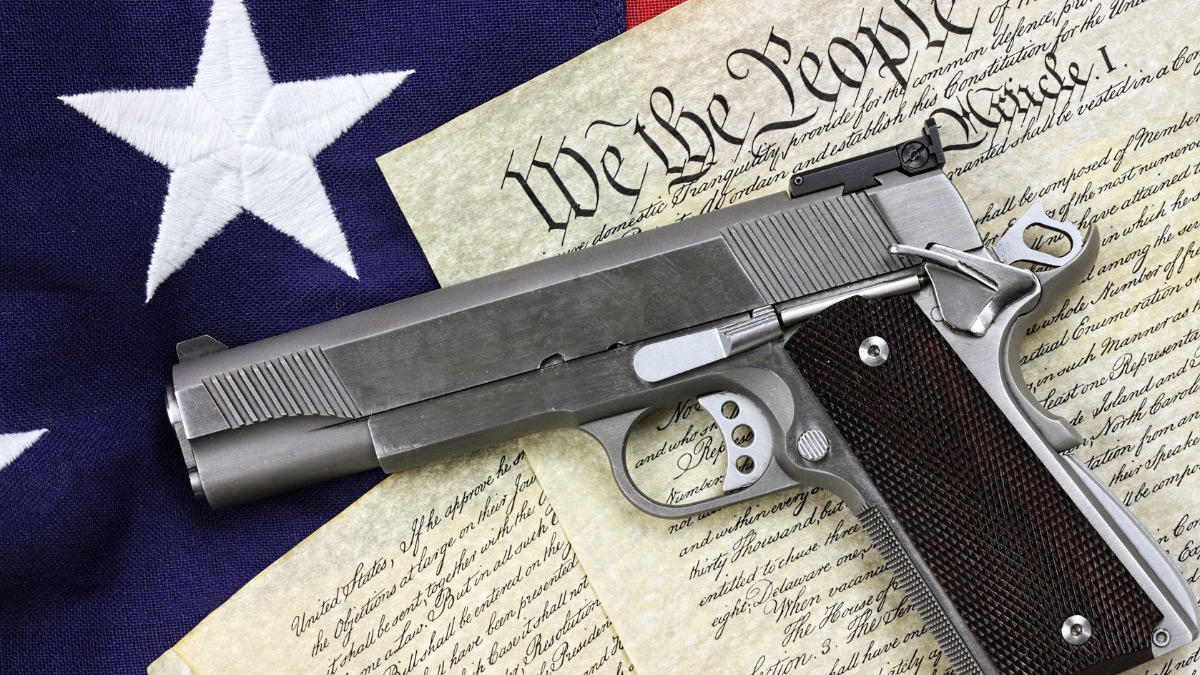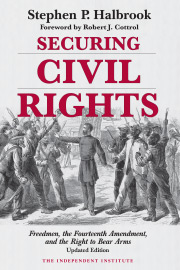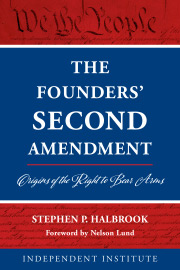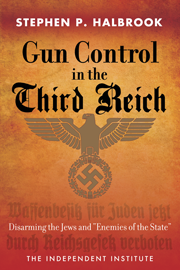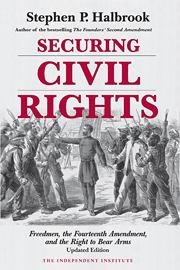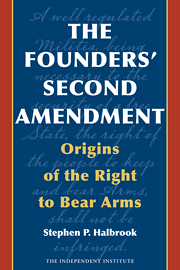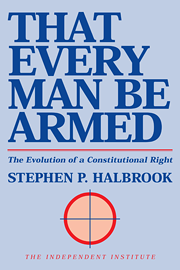Former Supreme Court justice John Paul Stevens, now retired, gave gun-control advocates false hope recently when he advocated repeal of the Second Amendment. Justice Stevens knows, or should know, that it can’t happen—not because the National Rifle Association is so powerful, but because 44 of the 50 states have enshrined the right to keep and bear arms in their constitutions, and it takes a vote of three-fourths of the states to approve any change in the U.S. Constitution. You do the math.
Writing in the New York Times on March 27, Stevens suggested that gun-control advocates should not just call for a ban on semiautomatic firearms, but should “demand a repeal of the Second Amendment.” Despite its reference to “the right of the people to keep and bear arms,” the amendment was never meant to place “any limit” on gun restrictions, Stevens claimed.
The Supreme Court, as Stevens also knows, ruled otherwise in District of Columbia v. Heller (2008), holding that “the people” means actual individuals. Yet Stevens naïvely suggested that “overturning that decision via a constitutional amendment to get rid of the Second Amendment would be simple.”
Stevens dissented in Heller on the basis that “the right to use weapons” exists only in the militia. Yet militia service entails obeying commands, not exercising a “right.” Stevens now moves from dissent to repeal.
Repeal of any Bill of Rights provision—even the love-to-hate right to bear arms—would require a radical sea change not only in attitudes, but in law. The amendment has been ingrained historically with what it means to be American.
After failing to disarm militiamen at Lexington and Concord, the British redcoats confiscated the firearms of the inhabitants of Boston. The Continental Congress cited this among the reasons to take up arms. Pennsylvania declared in 1776 that “the people have a right to bear arms for the defense of themselves, and the state,” and other states had similar provisions.
After the Constitution was proposed in 1787, James Madison—later to become America’s fourth president—referred in Federalist No. 46 to “the advantage of being armed, which the Americans possess over the people of almost every other nation,” adding that the European monarchies “are afraid to trust the people with arms.”
Madison went on to draft the Bill of Rights, guaranteeing “the right of the people” to assemble, to keep and bear arms, and to be free from unreasonable searches. As America expanded, most of the new states adopted similar guarantees in their constitutions.
At crucial times in American history, Congress reflected the popular understanding by reaffirming the right. In 1866 it passed the Freedmen’s Bureau Act, which protected the “full and equal benefit of all laws” concerning personal liberty and personal security, “including the constitutional right to bear arms.” The 14th Amendment, adopted two years later, was intended in part to protect the right to bear arms—particularly by African Americans—from state infringement.
Americans read about the disarming of the German Jews related to Kristallnacht in 1938, and of the execution of many in Nazi-occupied countries for not turning in their guns. Just before Pearl Harbor, Congress passed the Property Requisition Act of 1941, which allowed the federal government to seize private property that was needed for the nation’s defense but forbade any action “to impair or infringe in any manner the right of any individual to keep and bear arms.”
And in the Firearm Owners’ Protection Act of 1986, a bipartisan Congress recognized “the rights of citizens . . . to keep and bear arms under the second amendment” as it reformed federal gun-control laws.
When Heller was pending before the Supreme Court, a majority of members of the Senate and the House of Representatives joined in an amici curiae (“friends of the court”) brief urging the Court to recognize the amendment as an individual right. I had the privilege of authoring that brief. Don’t expect the necessary two-thirds of Congress to flip-flop and now propose repeal of the amendment to the States.
Debate will continue on how to reduce violence in America, but repeal of the Second Amendment isn’t in the cards.

